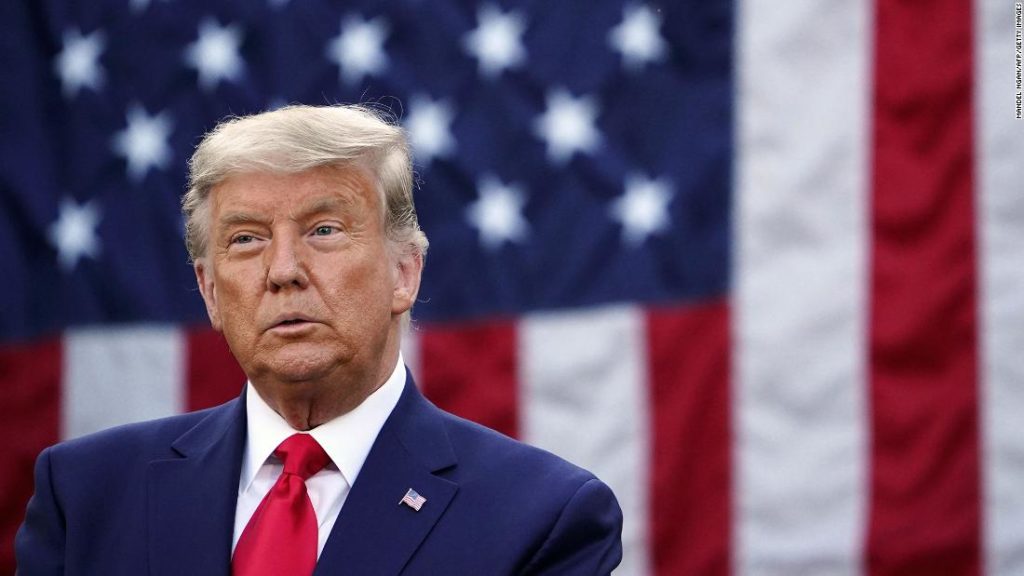Michael Cembalest, chairman of market and investment strategy at JPMorgan Asset Management, warned in a report Wednesday of the “remote risk of an American horror story” and “constitutional mayhem.”
“Bottom line: a LOT of very unorthodox things have to happen for Trump to be reelected,” the JPMorgan strategist wrote. “Even so, I’m not ruling anything out.”
But if investors don’t know who’s going to be in charge of the world’s largest economy, they could easily sell first and ask questions later.
“Markets might react negatively if the US as the world’s reserve currency nation is seen as sliding down a path toward electoral illegitimacy due to post-election maneuvers by political parties,” Cembalest wrote.
‘Dueling inaugurations’
To be sure, legal experts say Trump’s long-shot bid at overturning the election is just that, a long-shot. Put simply, Trump is losing by too many votes in too many states.
Even so, the JPMorgan strategist laid out several developments that could cast doubt on that outcome, including that one or more states submit competing slates of electors. Those competing slates would then be resolved January 6 by the new Congress through rules spelled out in the Electoral Count Act of 1887.
“The nightmare scenario for markets,” according to Cembalest, would be if Senate Republicans declare the ECA unconstitutional, flip three states in Trump’s favor to give him the required 270 electoral votes and Democrats refuse to participate.
Another risk laid out by Cembalest is if Barr directs investigators to “seize or impound election records” to probe for voter fraud, slowing down the process.
Dimon: ‘We have a new president’
For the most part, investors have appeared to ignore Trump’s war on the election results.
Markets have not flinched in response to headlines about his campaign’s many lawsuits. If anything, Wall Street came to terms with the outcome of the election even before CNN and other media outlets projected Biden to be the winner.
Investors have largely focused on other matters, including the makeup of the US Senate, progress in the quest to develop a coronavirus vaccine to fight the worsening pandemic and the prospects for the economic recovery.
But some are beginning to raise concerns about a transfer of power.
“I think we’re making far too little of this,” CNBC anchor Jim Cramer said Wednesday while expressing worries about a peaceful transition to a new administration.
Liz Ann Sonders, chief investment strategist at Charles Schwab, said that although her firm’s experts don’t see much of a risk of “rogue” electors, there “could certainly still be some black swan political event.”
You may also like
-
UK coronavirus variant has been reported in 86 countries, WHO says
-
NASA technology can help save whale sharks says Australian marine biologist and ECOCEAN founder, Brad Norman
-
California Twentynine Palms: Explosives are missing from the nation’s largest Marine Corps base and an investigation is underway
-
Trump unhappy with his impeachment attorney’s performance, sources say
-
Lunar New Year 2021: Ushering in the Year of the Ox

